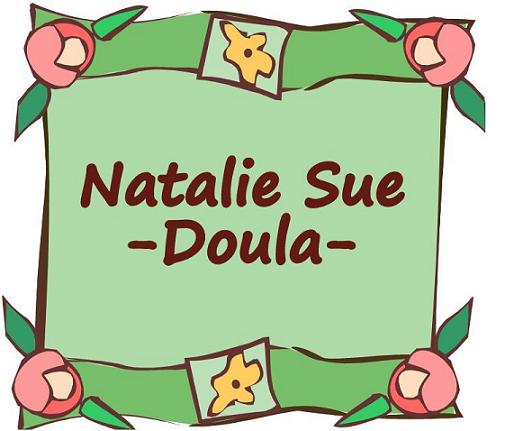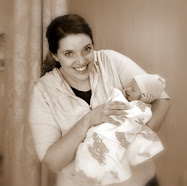I am grateful for medical technology... for doctors and medicine. But I feel that we have to be careful. I want a doctor and the medical technology to help me if I have a complication! To save lives. But I don't need medical technology if everything is going fine on it's own. Again, childbirth is not a medical proceedure. It's a very natural occurance.
Interventions Gone AwryOne of the most frustrating things for a nurse or midwife who supports normal birth is the overuse of obstetric interventions. Most interventions were designed to help with complications of childbirth, but have become so commonplace that they are routinely used for no reason at all.
Oxytocin augmentation or induction: According to the CDC’s 2005 report, 474 out of every 1000 women received oxytocin augmentation or induction of labor! I find it incredible that nearly half of women giving birth in the US today are assessed as being unable to begin or complete labor safely on their own. I believe the overuse of inductions and augmentations is the primary cause fetal distress and cesarean sections in the United States today.
One such situation that comes to mind involved Debbie (not her real name), who was in labor with her first baby. The first stage of labor had lasted only four hours, and now she was pushing. The nurse kept checking her and urging her to push harder and longer, as she was not progressing as rapidly as the staff thought she should. The physician ordered oxytocin (Pitocin) to be added to her IV to make her contractions longer, stronger, and closer together. During the next half hour, Debbie worked hard with her contractions. Suddenly, the baby’s heart rate plummeted to 50 beats per minutes, and despite position changes and oxygen, it did not improve. Nurses were rushing Debbie to the operating room for a c-section, when it was noticed that her IV bag containing the oxytocin was running at full speed, rather than the very slow drip that had been ordered. The baby was quickly delivered and did well, but the accidental overdose of oxytocin undoubtedly cause an unnecessary c-section for this mother and baby.
Amniotomy: Breaking the water is done in every labor where the water does not break spontaneously on its own. There are occasions when breaking the bag of waters is necessary–for instance, if the baby is born with the bag intact, it must be broken so that the baby can begin the breathe air. Occasionally, breaking the water will speed the delivery, but statistically it only shortens labor & birth by about 40 minutes. That forty minutes carries a high price for many women. Ellie (not her real name) was in very early labor. She came to the hospital with mild contractions about 10 minutes apart. The nurse checked her cervix and found her to be only one centimeter dilated, and the baby’s head still high in Ellie’s pelvis. The nurse wanted to send Ellie home to rest and walk and await active labor, but the physician preferred not to take the chance that she would come back in labor that night. He decided to break her water, even though the baby’s head was not engaged in the pelvis, and with the cervix open only one centimeter, the physician could not know if he had the amnihook (tool for breaking the water) in a safe position. Moments after he broke Ellie’s water, the baby’s umbilical cord swept down in front of the baby’s head. As the baby engaged in the pelvis, his head compressed the umbilical cord, cutting off his circulation. Ellie was rushed to surgery in a knee-chest position, riding through the halls on a gurney with the nurse’s hand in her vagina, elevating the baby’s head off the umbilical cord. Another completely unnecessary emergency, cause by an unnecessary intervention.
Operative vaginal delivery: This term refers to any use of forceps or vacuum to speed the vaginal birth of a baby. Fern was in labor with her second baby. Labor had progressed normally, but as Fern pushed with each contraction, the baby’s heart rate would drop for a few seconds before returning to its baseline rate. This is completely normal, and only becomes problematic if the heart rate is unable to return to normal. The physician, however, was concerned that the heart rate would at some point not return to normal, and decided to deliver the baby with a vacuum. The baby did not come out easily, and subsequently was found to have a subgaleal hemorrhage which caused bleeding into the brain followed by death.
What if this birth had been managed with the goal of non-intervention unless necessary? There could have been three possible outcomes:
-The baby would have continued to descend and the heart rate would have continued to return to normal between contractions, and baby would have been born without the hemorrhage.
-The baby would have stopped descending at some point, and it would have become apparent that he was not going to fit through the pelvis. As long as the heart rate remained reassuring, more time could have safely been allowed for this to occur.
-The baby’s heart rate would have become pathologic, indicating the need for cesarean birth.
Instead, a provider’s impatience with the process of labor and fear of the normal, physiologic changes in fetal heart rate during pushing led to this baby’s death.
In these cases, the hospital failed to be a “safety net” in case of disaster, and instead became the cause of the disasters.






